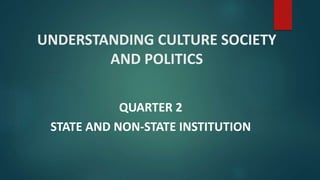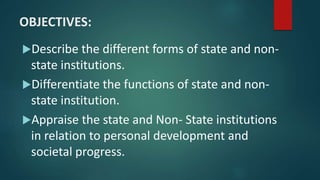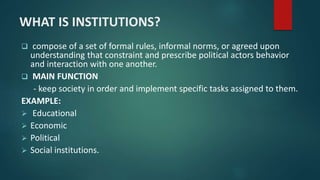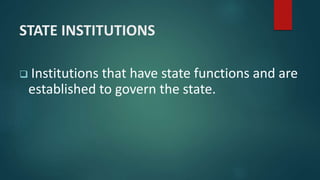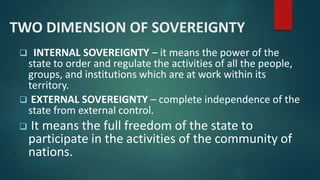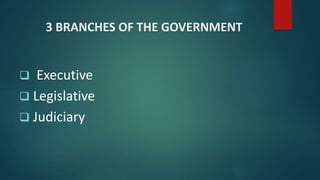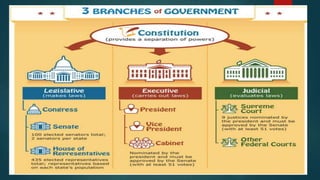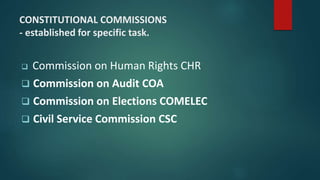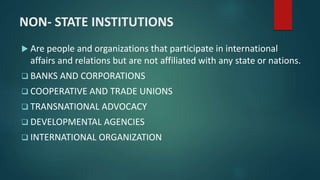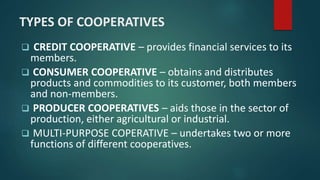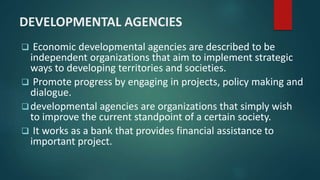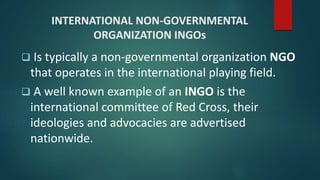This document discusses state and non-state institutions. It defines institutions as formal rules and norms that constrain political actors' behavior. State institutions are established by governments to govern states and include branches like executive, legislative, and judiciary. Non-state institutions include banks, corporations, cooperatives, trade unions, development agencies, and international organizations that are not affiliated with any state. The document provides examples and characteristics of different types of state and non-state institutions.
